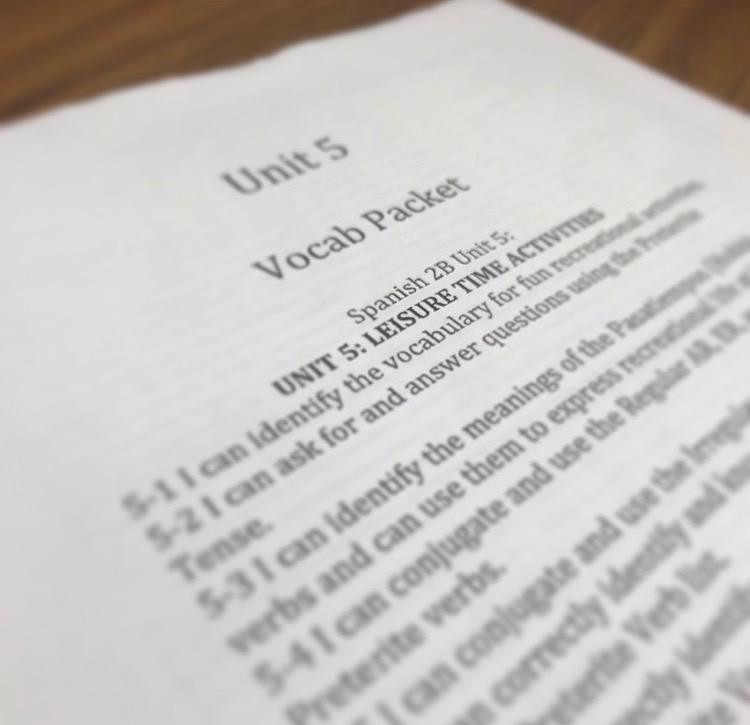New Spanish Class Policy is Beneficial
The new Spanish packet for the second semester of Spanish Two focuses around hobbies and fun activities.
February 25, 2019
The Fraser High School language department has made a recent change that will greatly benefit the student body. The change has been made to the retake policy regarding tests. This new policy will help students achieve better grades in their language classes and on their competencies.
Most competencies are difficult, causing many students to groan when they hear the word “competency” or the phrase “competency-based learning.” We all have that one class in which we dread the inevitable competencies, but we must take them. After taking a competency, we must also pass it with a minimum of 60 percent. Failure to pass a competency results in a CNM. Ending a class for the semester with a CNM means not passing the entire class, regardless of the overall grade displayed in PowerSchool. Because of this system, retakes are available to those who have not passed a competency.
Prior to the policy change, when we received a 60 percent on a competency, we couldn’t retake the test. Our parents might not have been too thrilled with the grade, but we technically passed and couldn’t retake the test. Some students wished to retake that test and try again for a better grade. According to prior policy; however, was not be possible. If a competency was taken and a 60 percent or higher was achieved, then that was considered a met competency. Retakes were only given to those students who did not meet the competency; therefore, got a grade lower than a 60 percent.
Now the policy states that a test can be retaken for a higher grade even if the competency was technically met. We need to keep in mind; however, that all retakes cannot exceed an 80 percent. This change positively affects us for many reasons. The obvious benefit is that we can now get higher grades on our competencies. Another benefit to this is that we can work on raising our GPA. If our language grade is suffering, so is our GPA. Conversely, if we retake the test for a better score, our GPA will go up.
Other classrooms such as the English department have already had this policy in place for the entire year. Some classrooms have yet to make this change. There is one main reason that some teachers don’t want to implement this rule. The main reason is that teachers believe that if there are harsher restrictions on retakes, then students would be more motivated to do good on the test the first time. The logic on this is not always true, however. This is because some students will study and try their best on a test but will still get a low grade. That particular student would then suffer the consequences. Whereas with the new policy, such students will get a second chance to get a better grade.
Allowing retakes on tests even if the competency is met will help students reach higher grades and higher GPAs. Students who chose not to study the first time a competency is given will probably be satisfied with a passing grade. They would most likely not want to retake it even if they passed with the minimum score of a 60 percent. So this new policy is beneficial to those students who actually work hard. For that reason, this policy should be implemented around the school and to every course. This will benefit students’ grades and their overall outlook on competencies.



